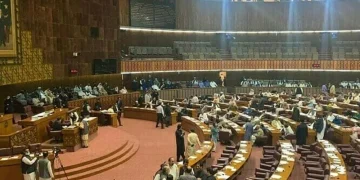Saudi Arabia just pulled off something most countries can only dream about. In three months, the Kingdom raised $862 million for startups while launching 80,000 new small businesses.
The second quarter of 2025 saw Saudi entrepreneurs secure more funding than many entire regions manage in a full year.
The country now hosts 1.7 million active small and medium enterprises (SMEs), with women owning nearly half of them at 47%. Young entrepreneurs under 35 control 38% of all business registrations.
Saudi Startup Funding Dominates Middle East
Saudi startups raised SR3.225 billion ($862 million) across 114 deals in the first half of 2025. This represents 116% annual growth in deal value and 31% growth in deal volume.
The Kingdom now accounts for 56% of all venture capital funding across the Middle East and North Africa region. Total funding could exceed $1 billion by year-end if current trends continue.
Saudi Arabia led regional startup funding for the second consecutive month, attracting $166 million across 19 deals in August alone.
Riyadh Emerges as Global Startup Powerhouse
Riyadh jumped 60 positions to rank 23rd globally in startup ecosystem performance, according to Startup Genome’s 2025 Global Startup Ecosystem Report. The capital city contributed around 50% of Saudi’s non-oil GDP.
More than 600 international companies have established regional headquarters in Riyadh under the government’s headquarters program. The city attracted 28,181 new business registrations in Q2 2025, representing 35.2% of all new SME records.
Saudi Arabia ranks second in startup ecosystem performance across the MENA region and third globally in terms of funding relative to GDP.
Women, Youth, and Government Programs Drive Business Growth
The data reveals a stunning shift in Saudi business ownership patterns. Women now own 47% of all SME records, while youth control 38%. In education sector SMEs specifically, women own 39.4% of establishments.
This demographic transformation aligns with Vision 2030’s goals to diversify the economy and increase private sector participation. SMEs currently contribute approximately 21.9% of Saudi’s GDP, with targets to reach 35% by 2030.
E-commerce records hit 39,366 in Q2 2025, highlighting the digital transformation of Saudi business market.
The Small and Medium Enterprises General Authority (Monsha’at) continues expanding support programs. The Kafalah Program, launched in 2006, has delivered SR121 billion ($32.3 billion) worth of products and initiatives by Q2 2025.
Guarantees provided under the program exceeded SR86.8 billion ($23.2 billion), supporting 26,095 establishments through 12 financing programs. The Tomoh Program assisted 3,175 SMEs in Q2 2025, with many companies later listing on the parallel market (Nomu).
Minister of Education Yousef Al-Benyan confirmed that investment opportunities in the education sector alone are estimated at more than SR50 billion ($13.3 billion) by 2030.
Regional Distribution Shows Balanced Growth
Riyadh Region topped new registrations with 28,181 records (35.2%). Makkah followed with 14,498 records (18.1%), Eastern Region with 12,985 records (16.2%), and Qassim with 4,920 records (6.2%).
The remaining regions accounted for 19,416 records (24.3%), showing that business growth extends beyond major urban centers.
Saudi Arabia Outpaces Global Startup Trends
While global venture capital markets faced challenges in 2025, Saudi Arabia bucked the trend. MAGNiTT data shows MENA funding rose 92% year-over-year to $1.5 billion across 310 deals in the first half of 2025.
Saudi Arabia’s startup ecosystem grew 236.8% in 2025, ranking 38th globally with 2,066 startups and total funding exceeding $18.93 billion, according to StartupBlink.
The Kingdom’s private sector continues delivering strong performance, supported by non-oil investments and sustained economic activity. Vision 2030 initiatives focus on creating a thriving economy where businesses of all sizes can succeed.
Saudi Arabia’s business boom reflects deeper economic transformation. With oil accounting for less than 50% of GDP for the first time in 2023, the Kingdom demonstrates that economic diversification efforts are paying off.













